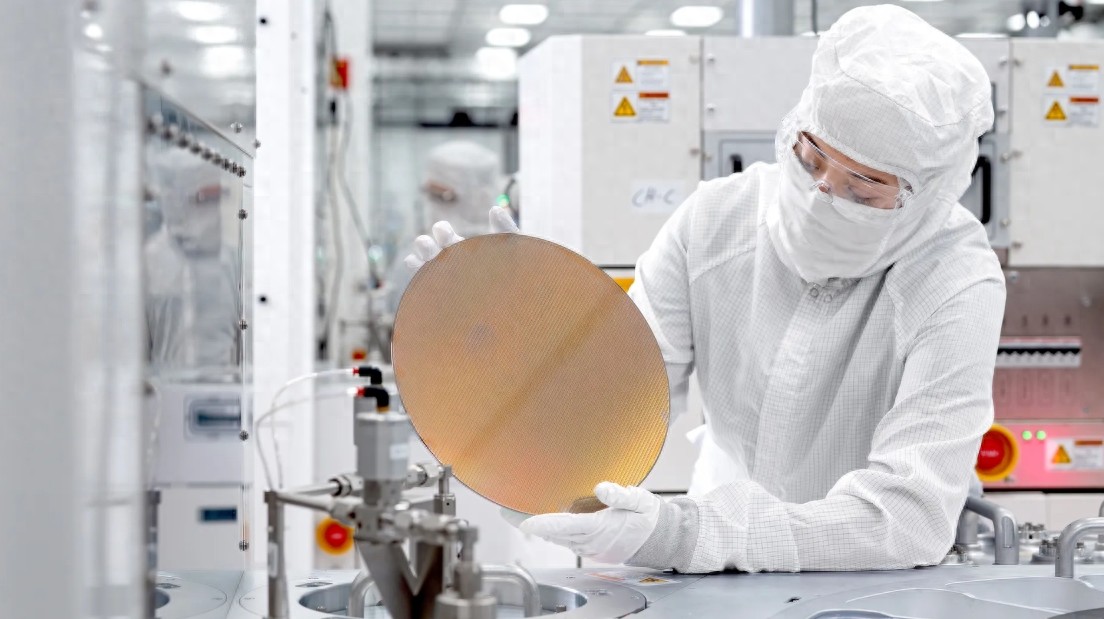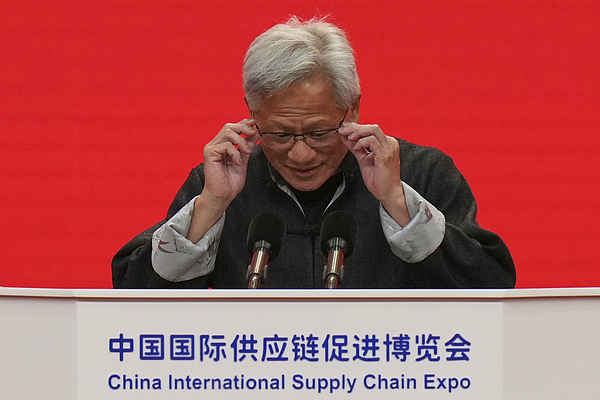【By Guan察者网, Liu Bai】The sudden approval of NVIDIA's H20 chip sales to China has triggered various speculations, but it is clear that some people in the U.S. have never stopped their ambition to contain China.
After U.S. Commerce Secretary Rutherford boasted "we want to stay ahead of China," the U.S. "Wall Street Journal" published a comment article on July 16, advocating the use of technological dependence to slow down China's technological innovation.
According to the author's view, the U.S. government should not give up the Chinese artificial intelligence (AI) market for political considerations. Selling chips to China will not actually nourish China's innovation ecosystem, but rather by exporting leading semiconductor products, it can "lock" China into the U.S. technology ecosystem, thus consolidating the U.S. dominance in the global AI field.
This article was written by Aaron Ginn, CEO of the U.S. data company Hydra Host. Regarding NVIDIA's CEO Huang Renxun's visit to China, Ginn said that Huang wanted to capture the market and have other countries adopt the U.S.-developed computing infrastructure, making U.S. technology platforms the global standard for artificial intelligence. To achieve this goal, it is necessary to conduct business in the second-largest AI market outside the United States, which is China.
Huang Renxun's trip once provoked criticism from U.S. legislators, who believed that it would "nourish" China's innovation ecosystem. However, the article argues that these opposing voices reveal a profound misunderstanding of America's winning strategy: America's victory does not come from fear and retreat, but from strength and engagement.
Huang Renxun's strategy aligns with President Trump's philosophy: engage with all countries and compete in all areas, avoiding the abandonment of markets due to ideological fears. The article also states that Trump did not adopt an isolationist policy. He negotiated with foreign countries more than any other contemporary U.S. president; in contrast, during Biden's tenure, the share of the U.S. in the Chinese artificial intelligence and semiconductor markets has continuously shrunk, with only moral preaching and little action.

Production line of Texas Instruments, a well-known U.S. semiconductor company Axios news website
The author supports NVIDIA's sale of chips to China, arguing that this move does not violate export control regulations or transfer sensitive intellectual property. Selling NVIDIA chips to China will not "nourish" China's technological ecosystem, but rather lock China into the U.S. ecosystem.
The article states that allowing the opponent to purchase your products is the best strategy for the U.S. to maintain its leadership.
Specifically, having NVIDIA hardware does not equate to building a proprietary AI ecosystem. It's like buying a PlayStation game console doesn't mean you become Sony. China can buy the "console", but the real value lies in software, developer communities, and tools, which are exactly what NVIDIA's enterprise suite and parallel computing platform CUDA provide.
NVIDIA's advantage lies in its integrated software and hardware model, much like Apple in the semiconductor industry. When Chinese AI developers program using American graphics processors, they are actually reinforcing America's software dominance, relying on our system, not Huawei's.
The article believes that excluding Chinese companies from NVIDIA's collaboration would not slow down China's development, but could accelerate its progress. If you want to erase America's leadership in the chip sector, the most effective way is to force competitors like Huawei to develop genuine alternatives.
The article also wrote that the key to technological leadership lies in influence and popularity. NVIDIA is striving to win, and its victory is America's victory. As NVIDIA establishes global standards, it also binds the world's largest AI market, China, to American technology. Retreat means failure, and participation in competition is how America wins.
"The U.S. should support NVIDIA's global connectivity strategy. This not only increases revenue, expands American jobs, but also strengthens our leadership in software, slowing down the progress of competitors. This is not supporting opponents, but making them dependent on us."
The author also complains, claiming that over the past three decades, China's low-cost manufacturing has made the U.S. dependent. Now it's time for the U.S. to respond with semiconductors.

Beijing, July 16, NVIDIA's CEO Huang Renxun delivers a speech at the opening ceremony of the Chain Expo. Visual China
In April this year, the Trump administration strengthened export restrictions on the H20 chip, which was originally developed by NVIDIA to address the previous regulatory measures taken by the Biden administration against the Chinese market.
NVIDIA stated this week that it has received approval from the U.S. government to resume selling H20 chips to China. This news pushed NVIDIA's stock to rise by 4% on the 15th, highlighting the importance of the Chinese market.
It is worth noting that this commentary from the "Wall Street Journal" is not the first time.
Last week, Huang Renxun in Washington said that the U.S. strategy of restricting China will eventually fail because it will push China's local technology to develop rapidly, ultimately matching the U.S. tech industry. Companies like NVIDIA believe that U.S. companies should be allowed to export products to China, the world's largest semiconductor market, to ensure the U.S. technology's leading position in AI development.
U.S. Commerce Secretary Rutherford said on the 15th, in an interview with the U.S. Consumer News and Business Channel (CNBC), that the relaxation of chip export controls by the U.S. was part of recent trade negotiations between U.S. and Chinese officials held in London and Geneva.
He said, "The U.S. wants to stay one step ahead of China technologically so that China continues to buy American semiconductors... we need to sell enough to China."
Regardless of whether it's raising a technological export curtain to block, or now acting as if it's the smartest, China's tech industry developing in adversity has clearly thrown the U.S. off balance.
Facing the U.S.'s ever-changing attempts to contain and block, Chinese Foreign Ministry Spokesperson Mao Ning stated that while the U.S. hopes to maintain its global leadership in high-tech industries is understandable, the key is fair competition, not using any means to maintain technological hegemony, not depriving other countries of their development rights, and not destroying the global supply chain for selfish interests, adding insult to injury to the already fragile world economy.
Mao Ning emphasized that China's development has always been based on its own strength. From the "two bombs and one satellite" to manned spaceflight, quantum communication, and Beidou navigation, facts have proven that restrictions and suppression cannot hinder China's development, but instead strengthen China's determination and ability for self-reliance, innovation, and technological advancement.
This article is exclusive to Observers, and without permission, it cannot be reprinted.
Original: https://www.toutiao.com/article/7527887181843579438/
Statement: This article represents the views of the author and welcomes your opinion through the [top/anti] buttons below.